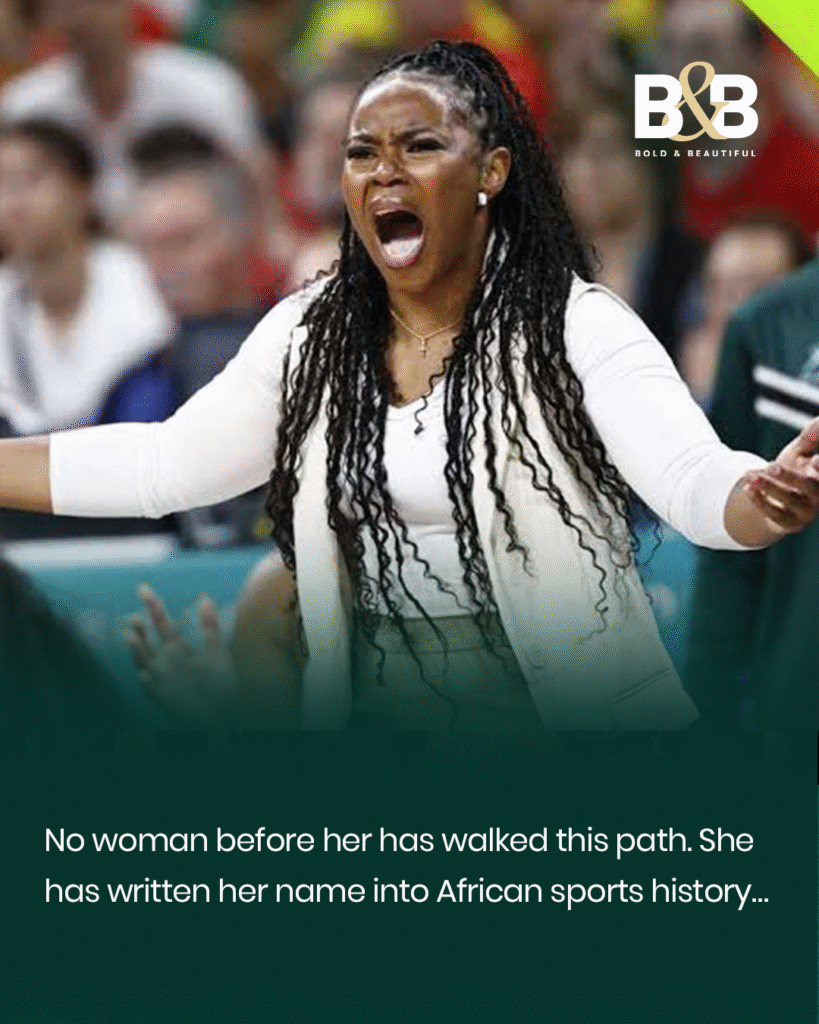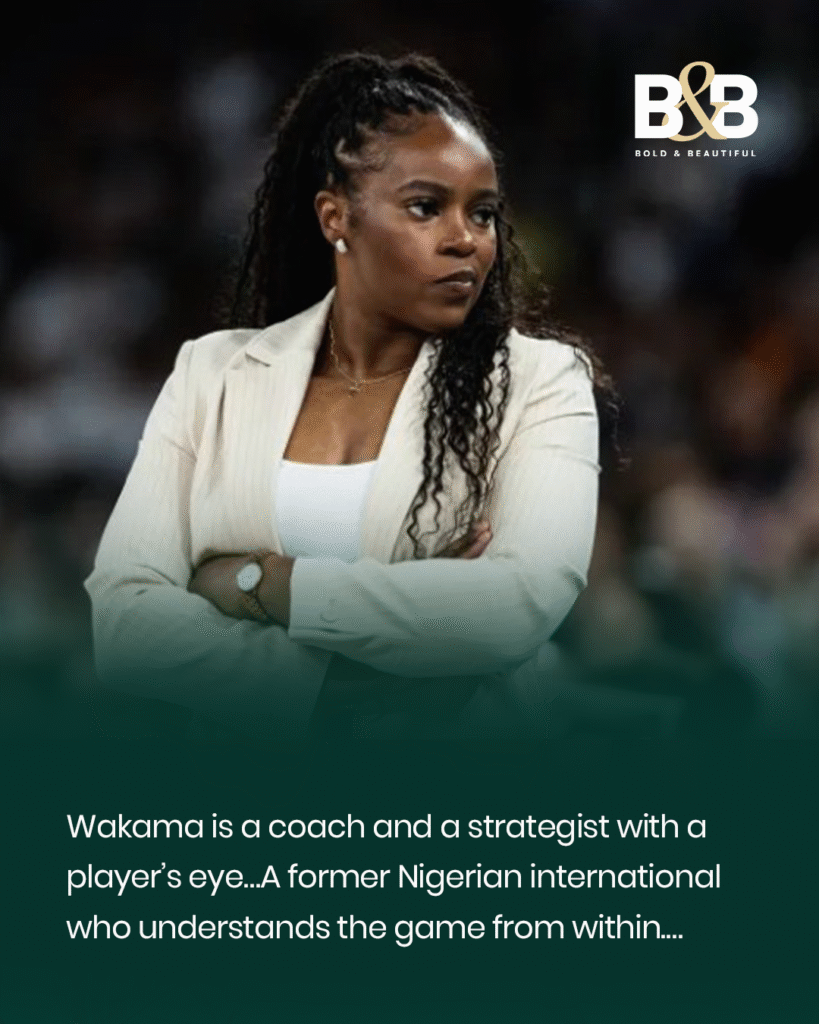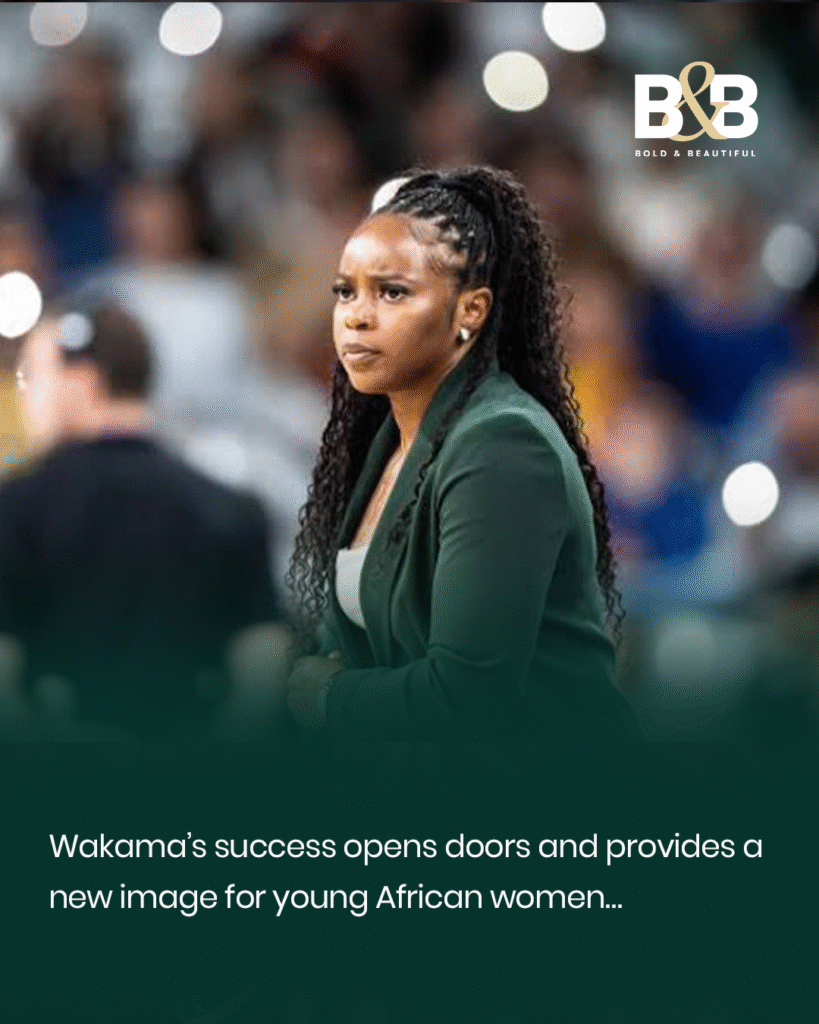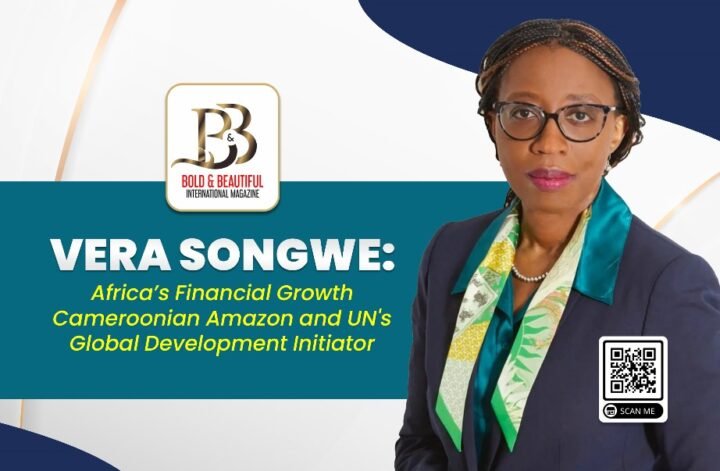When Rena Wakama took over the reins of Nigeria’s national women’s basketball team, it didn’t come with a parade. There were no loud predictions or attention-grabbing declarations. But she arrived with a quiet conviction, a mind sharpened by experience, and a clear blueprint for what it would take to keep the winning culture alive. Two years later, she has done more than keep it alive—she has fortified it.

With Nigeria’s recent victory at the 2025 FIBA Women’s AfroBasket Championship in Kigali, Coach Rena Wakama has become the first female head coach in history to win back-to-back AfroBasket titles. No woman before her has walked this path. She has written her name into African sports history, not with grand gestures, but through discipline, resilience, and technical depth.
What makes Wakama’s triumph particularly striking is the context of her journey. In 2023, when she led D’Tigress to their fourth consecutive title, it was already a landmark moment. She became the first woman to lead any team—male or female—to an AfroBasket crown. Many saw it as a brilliant achievement. Few expected a repeat. She quietly prepared for it.

She coached in a system still finding its footing in terms of structure and funding. She guided players spread across multiple time zones, with limited preparation time. Yet, she stood firmly, read the room, read the game, and adapted with precision. The D’Tigress she leads today is a well-drilled unit, shaped not only by talent, but also by clear-headed leadership from the touchline.
Wakama is not just a coach with a whistle and clipboard. She is a strategist with a player’s eye. A former Nigerian international herself, she understands the game from within. She speaks her players’ language. She knows when to lean in and when to hold back. Her presence is commanding, not theatrical.
During the 2025 tournament, her in-game adjustments were the difference in key moments. In the final against Mali, when the pressure mounted and nerves crept in, Wakama didn’t flinch. She made bold substitutions, called critical plays, and read Mali’s movements like a chess master anticipating the next three moves. That calm, tactical sharpness proved decisive.
But perhaps what stands out most is her refusal to make herself the centre of the story. In press conferences, she redirects the spotlight to her players. In interviews, she credits the federation and coaching staff. Yet, inside the locker room and among her peers, everyone knows what she brings: structure, clarity, and a winning mentality that feels contagious.

In a continent where female coaches rarely get this level of responsibility, Wakama’s success goes far beyond basketball. It challenges the old assumptions. It opens doors. It provides a new image for young African women who aspire to lead, to win, and to stand their ground in high-stakes spaces.
Rena Wakama didn’t inherit a dynasty. She built on one—and in doing so, created her own legacy. With every win, she is shifting the conversation around women in leadership and competitive sports. No slogans, no speeches. Just results.
She now stands as a figure of inspiration, but also as a technical authority whose coaching acumen demands respect. And while history has already recorded her name, Wakama doesn’t appear finished. She is not chasing attention. She is building a model. And models last.





